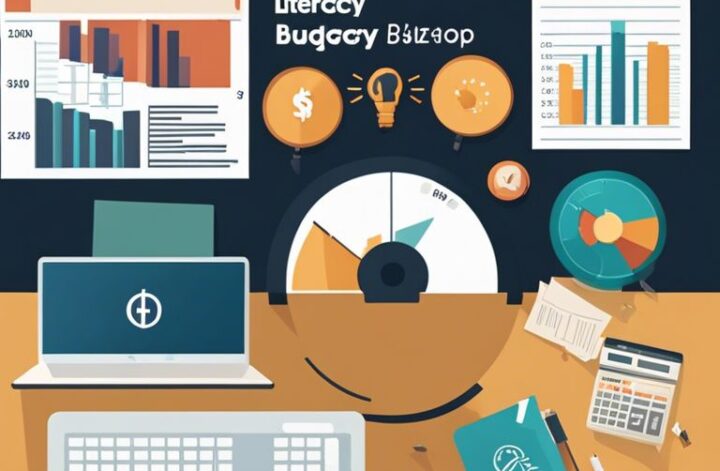It’s important for young professionals to find a budgeting method that suits their lifestyle and financial goals. One key decision to make is whether to budget on a monthly or annual basis. Both approaches have their own advantages and disadvantages, and understanding these can help individuals make informed decisions about managing their finances effectively. In this post, we will discuss the pros and cons of monthly and annual budgeting methods to help young professionals find the rhythm that works best for them.
Key Takeaways:
- Monthly Budgeting:
- Pros: Helps track expenses more closely, allows for smaller adjustments, easier to anticipate monthly bills.
- Cons: Can be time-consuming to review and adjust each month, may overlook larger annual expenses.
- Annual Budgeting:
- Pros: Provides a big-picture view of finances, better for planning long-term goals, allows for focusing on larger financial decisions.
- Cons: May be less flexible for unexpected expenses, can be challenging to stick to budget over the course of a year.
- Choosing the Right Method: Consider your spending habits, financial goals, and lifestyle when deciding on a budgeting method.
- Combining Methods: Some individuals may benefit from a combination of monthly and annual budgeting methods to meet their financial needs.
- Consistency is Key: Whatever method you choose, consistency in tracking and reviewing your finances is crucial to achieving your financial goals.
Understanding Monthly Budgeting
One important aspect of budgeting is reviewing and revising to get the most from your budget plan. It is necessary to regularly assess your expenses and income to ensure you are staying on track with your financial goals. For detailed tips on how to effectively review and revise your budget, check out Reviewing & Revising to Get the Most from Your Budget Plan.
The Mechanics of a Monthly Budget
On a monthly budget, you allocate your income and expenses for each month. This involves listing all sources of income, categorizing expenses, setting spending limits, and tracking your spending throughout the month. By breaking down your budget on a month-to-month basis, you can have a clearer picture of where your money is going and make necessary adjustments as needed.
Advantages of Monthly Budgeting
To effectively manage your finances, a monthly budget provides a detailed overview of your cash flow and expenses. This helps in identifying any areas where you may be overspending and allows you to make adjustments in real-time to stay on track with your financial goals. Additionally, monthly budgeting promotes regular check-ins and accountability, ensuring you are actively managing your money throughout the year.
Advantages of Monthly Budgeting
With a monthly budget, you have the opportunity to make immediate changes if you notice you are overspending in a particular category. This flexibility allows for better control over your finances and can prevent you from accumulating debt or falling off track with your financial goals.
Disadvantages of Monthly Budgeting
Monthly budgeting may require more frequent attention and adjustments compared to an annual budget. It can be more detailed and time-consuming to track expenses on a monthly basis, which may not be suitable for those who prefer a more hands-off approach to budgeting. Additionally, unexpected expenses or income fluctuations within a month can disrupt your budgeting plans and require immediate adjustments.
Monthly budgeting
While monthly budgeting offers more detailed oversight of your finances, it may also feel restrictive for some individuals. The constant monitoring and adjustments required with a monthly budget can be overwhelming for those with busy schedules or who prefer a more hands-off approach to budgeting.
Mechanics
To effectively implement a monthly budget, it is necessary to set aside time each month to review your expenses, compare them to your income, and make necessary adjustments to stay on track with your financial goals. Creating a habit of regularly checking your budget can help you make informed financial decisions and maintain financial stability throughout the year.
Exploring Annual Budgeting
The Structure of an Annual Budget
Not everyone may find the idea of planning an entire year’s worth of expenses at once appealing, given the dynamic nature of life and financial situations. However, for those who prefer a longer-term approach to budgeting, annual budgeting can provide a comprehensive overview of their financial health and goals.
Advantages of Annual Budgeting
For young professionals looking to set and achieve long-term financial goals, annual budgeting offers a structured and holistic way to manage their money. By forecasting expenses for the entire year, individuals can better plan for big-ticket purchases, milestones, and savings goals.
Annual budgeting can also help in identifying trends and patterns in spending, allowing individuals to make more informed decisions about their financial habits. With a clear roadmap of their financial goals for the year, young professionals can stay on track and avoid unexpected financial pitfalls.
Annual budgeting provides a sense of stability and foresight that may be lacking in monthly budgeting methods. It allows individuals to set aside funds for anticipated expenses well in advance, reducing the likelihood of financial stress and uncertainty.
Disadvantages of Annual Budgeting
An annual budget may not account for unexpected expenses or changes in financial circumstances that can arise throughout the year. While setting a budget for the entire year can provide a sense of control, it may also limit flexibility in adjusting to changing financial needs or priorities.
A rigid annual budget may lead to feelings of frustration or defeat if circumstances force individuals to deviate from their initial plan. Financial setbacks or unforeseen expenses can disrupt the balance of an annual budget, requiring adjustments that may feel overwhelming or demotivating.

Comparative Analysis: Monthly vs. Annual Budgeting
| Critical Differences Between the Two Methods | |
| Annual Budgeting |
Annual budgeting allows for a broader view of financial planning over a year. It helps in setting big financial goals and tracking progress towards them efficiently. It also reduces the stress of monthly budget adjustments and allows for better long-term financial planning. |
| Monthly Budgeting |
Monthly budgeting, on the other hand, provides a more granular approach to tracking expenses on a month-to-month basis. It helps in managing cash flow efficiently and can be beneficial for individuals with fluctuating incomes or expenses. |
Scenarios Favoring Monthly Budgeting
Monthly: If you have irregular income streams or expenses that vary significantly month to month, then monthly budgeting can help you stay on track with your finances. It provides a more detailed insight into your spending habits and allows for quicker adjustments when needed. Additionally, for young professionals who are just starting with budgeting, monthly tracking can be less overwhelming and easier to manage.
Scenarios Favoring Annual Budgeting
Comparative: Annual budgeting is particularly advantageous for those with stable incomes and expenses. It enables long-term planning and goal setting, such as saving for a down payment on a house or planning a big vacation. By looking at the bigger picture, annual budgeting helps in identifying trends and making strategic financial decisions for the future.
Plus: It is important to note that there is no one-size-fits-all approach when it comes to budgeting. Young professionals should evaluate their financial situation, goals, and personal preferences to determine whether monthly or annual budgeting suits their lifestyle best. Experimenting with both methods and finding a balance that works for you can lead to better financial management in the long run.
Integrating Lifestyle with Budgeting Choices
Understanding Your Financial Goals
Despite the ongoing debate between monthly and annual budgeting methods, it’s crucial for young professionals to align their budgeting choices with their financial goals. Both approaches have their merits, as highlighted in Annual vs Monthly Billing: Subscription Payment …
The Impact of Income Stability and Predictability
For many young professionals, the predictability of income plays a significant role in determining the most suitable budgeting method. One’s income stability and regularity can heavily influence the effectiveness of monthly versus annual budgeting.
One must carefully analyze their income fluctuations and assess how these variations could impact their budgeting decisions. If there is a high level of stability in income, annual budgeting might provide a more streamlined approach to financial planning, whereas those with irregular income streams may find the flexibility of monthly budgeting more suitable.
Lifestyle Considerations and Budgeting Flexibility
Understanding individual lifestyle considerations is paramount when deciding between monthly and annual budgeting. Factors such as expenses, spending habits, and financial goals should all be taken into account to determine the most compatible method.
While monthly budgeting offers greater flexibility and adaptability to changing circumstances, annual budgeting can provide a more comprehensive overview of long-term financial planning. Young professionals need to weigh these factors against their lifestyle preferences to find the approach that best suits their needs.

Tools and Strategies for Effective Budgeting
Budgeting Software and Apps
Apps have revolutionized the way we manage our finances, offering convenience and efficiency in tracking expenses, setting goals, and monitoring progress. Popular budgeting apps like Mint, YNAB, and EveryDollar allow users to sync their accounts, categorize spending, and receive alerts for overspending. These tools provide real-time insights into financial habits, making it easier to stick to a budget and achieve financial goals.
Manual Budgeting Techniques
Manual budgeting techniques, such as using spreadsheets or pen-and-paper journals, offer a more hands-on approach to tracking income and expenses. While these methods require more effort and time, they can provide a deeper understanding of one’s financial habits and a greater sense of control over finances. Some individuals find that the act of physically writing down expenses helps them stay accountable and make smarter financial decisions.
To further enhance the effectiveness of manual budgeting techniques, consider utilizing detailed expense trackers and setting monthly or annual financial goals. By creating a clear roadmap for your financial journey and regularly reviewing your progress, you can stay on track and make adjustments as needed to achieve long-term financial stability.
Integrating Monthly and Annual Budgets for Optimal Control
Any effective budgeting strategy should strike a balance between monthly and annual planning. While monthly budgets allow for more detailed tracking of day-to-day expenses and fluctuations, annual budgets provide a broader view of long-term financial goals and savings targets. By integrating these two approaches, young professionals can gain a comprehensive understanding of their finances and make informed decisions to ensure financial well-being over time.
Effective budgeting requires consistent effort and discipline. By utilizing a combination of budgeting software, manual techniques, and a strategic approach to integrating monthly and annual budgets, young professionals can tailor their budgeting methods to suit their lifestyle and achieve financial success.

Common Pitfalls in Budgeting and How to Avoid Them
Underestimating Expenses
Many young professionals fall into the trap of underestimating their expenses when creating a budget. It’s easy to overlook recurring costs such as subscription services, maintenance fees, or unexpected expenses like medical bills. To avoid this common pitfall, it’s crucial to track your spending closely and create a detailed budget that includes all potential expenses. For a step-by-step guide on creating a budget, check out How to Create a Budget in 5 Steps.
Overlooking Irregular or Infrequent Costs
One pitfall that many young professionals encounter is overlooking irregular or infrequent costs in their budget. These can include annual membership fees, car maintenance, or holiday expenses. To avoid this pitfall, it’s crucial to anticipate these costs and set aside a portion of your budget for them each month. By accounting for these irregular expenses, you can avoid overspending and keep your finances on track.
Irregular or infrequent costs can add up quickly if not properly budgeted for. For example, data shows that the average American spends over $1,000 on holiday expenses alone each year. By planning for these costs in advance, you can prevent them from derailing your budget and causing financial stress.
Inadequate Savings and Emergency Funds
Pitfalls related to inadequate savings and emergency funds are prevalent among young professionals. Many individuals prioritize spending over saving, leaving them vulnerable to unexpected expenses or financial setbacks. It’s crucial to allocate a portion of your income to savings and emergency funds to build a financial safety net. By establishing these funds, you can protect yourself from unforeseen circumstances and maintain financial stability.
The importance of having adequate savings and emergency funds cannot be overstated. Research shows that nearly 40% of Americans would struggle to cover a $400 emergency expense. By prioritizing savings in your budget, you can avoid financial hardships and be better prepared for the future.
Summing up
With these considerations in mind, young professionals can weigh the pros and cons of both monthly and annual budgeting methods to find the approach that best suits their lifestyle. Monthly budgeting allows for more frequent adjustments and provides a clear picture of your financial situation on a regular basis. On the other hand, annual budgeting can provide a more comprehensive view of your finances and helps in long-term planning and goal setting.
Ultimately, the choice between monthly and annual budgeting methods will depend on individual preferences and financial goals. Experimenting with both approaches and finding a balance that works for you can help young professionals take control of their finances and achieve their financial objectives.




